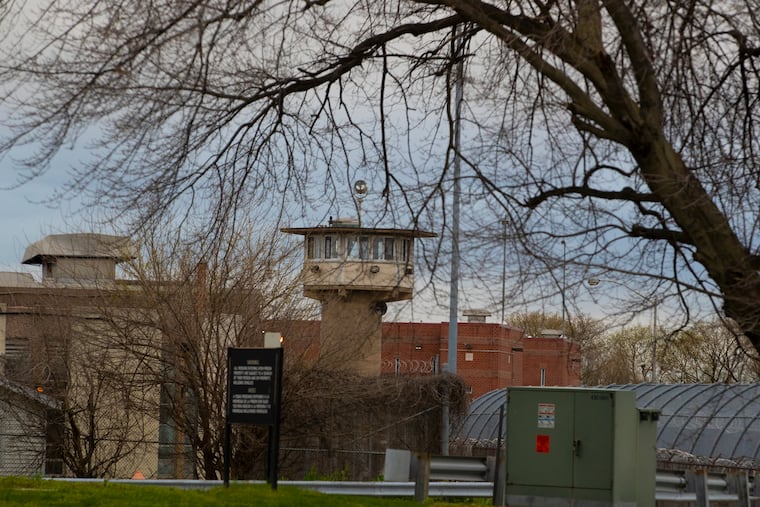A man with diabetes died in a Philadelphia jail after he didn’t get insulin for 6 days, lawsuit says
Louis Jung Jr.'s sons allege in a federal lawsuit that medical staff in a Philadelphia jail did not check on their father for most of the final week of his life.

A 50-year-old man with diabetes died in a Philadelphia jail last fall after staff didn’t provide him with insulin or check his blood sugar for days, a federal lawsuit filed Wednesday says.
Louis Jung Jr. of South Philadelphia died on Nov. 6, 2023, of a condition called ketoacidosis, in which blood becomes acidic due to high sugar levels. Jung was diagnosed with type 1 diabetes as a teen and required daily insulin injections to reduce his blood sugar levels. But staff at the Curran-Fromhold Correctional Facility on State Road did not administer him insulin in the last six days of his life, according to the complaint.
The lawsuit, which was filed in the Eastern District of Pennsylvania by two of Jung’s sons, accuses the Philadelphia Department of Prisons and YesCare, the contractor that provides medical care in the city’s jails, of failing to provide Jung basic health care, resulting in his death.
“They allowed Mr. Jung to slowly die from diabetic ketoacidosis … despite being aware of his serious medical needs for daily treatment for his diabetes and his need for emergency care to resolve his elevated glucose level,” the lawsuit states.
Jung is one of 13 people who died in the Northeast Philadelphia jails complex in 2023, where roughly 4,500 are incarcerated. According to the complaint, at least two other inmates have died in CFCF due to diabetic ketoacidosis in the last decade.
The city was reviewing the complaint and had no comment, a spokesperson said.
YesCare said that it has not been served the complaint yet but the company does not comment on pending litigation.
“We are prohibited from commenting on specific patient care due to state and federal privacy laws,” a statement said.
Jung was arrested December 2021 on robbery charges, and his diabetes was poorly managed since he was incarcerated, the lawsuit says. He was hospitalized for high blood sugar levels four days after he arrived at CFCF, and twice more during his first six months at the jail.
Jung’s mental health declined, and in spring 2023, a judge ordered that he be sent to Norristown State Hospital for psychiatric evaluation of his ability to stand trial. He returned to CFCF on Oct. 28. During his intake, Jung’s blood sugar level was over 500, according to the complaint. That is roughly four times higher than the upper limit of the normal range for glucose.
Instead of transferring Jung to a hospital or a medical unit at the jail, staff sent him to a regular housing unit, where he received fewer than half of the insulin doses prescribed to him, the complaint says. And the nurse who checked on him allegedly recorded wrong information on the forms.
The last time medical staff checked his glucose was a week before his death. His blood sugar level was not documented, the lawsuit says.
“Imagine being locked up and the people who are hired and get paid to provide for health care fail to provide life sustaining medication,” Jacob Jung, one of Louis Jung’s sons, said in a statement.
Jung’s eldest son has a disability and is dependent on care, a role his father often fulfilled, according to attorneys.
» READ MORE: Drug deaths and overdoses plague Philly jails, raising concerns about plans to step up Kensington arrests
The lawsuit accuses the Philadelphia Department of Prisons of violating the Americans with Disabilities Act by not providing Jung with the needed accommodations to treat his diabetes. It also accused YesCare of failing to meet the standard of care that it claims it provides people with diabetes. The complaint says that the Tennessee-based corporation minimizes costs to maximize profits.
Bret Grote, an attorney for the Philadelphia-based Abolitionist Law Center who represents Jung’s sons, said they hope to get answers about their father’s treatment, or lack thereof. But he doesn’t expect any answer to be satisfactory.
“Public safety and public health are not furthered by jamming people into trauma-inducing confinement where their medical needs are not met,” he said. “There is case after case making it all too clear in Philadelphia in recent years.”